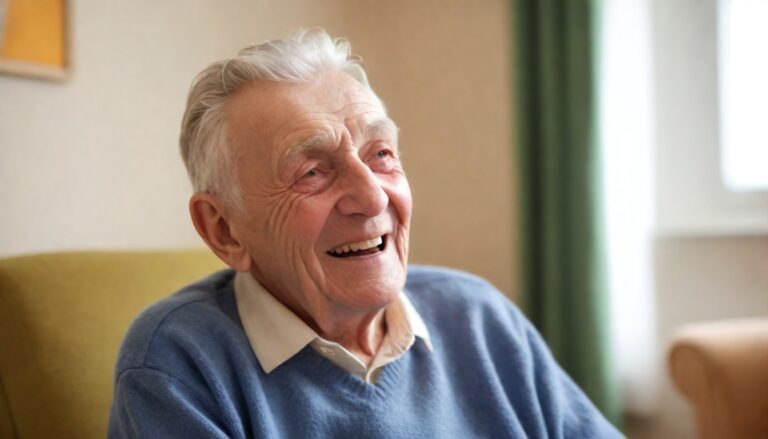
Cultural sensitivity means being aware of, and respecting, the differences between people from various backgrounds. In health and social care, this affects how you interact with individuals. It involves understanding that people’s values, belief systems, and customs may influence their care and wellbeing. Failing to practise cultural sensitivity can lead to misunderstandings, lack of trust, and poorer outcomes.
People in the UK come from many backgrounds. Health and social care staff may meet service users from all over the world. Staff need to be flexible and open-minded to meet people’s needs properly.
What is Covered in Cultural Sensitivity?
Cultural sensitivity builds upon three main ideas:
- Awareness of your own cultural background and possible biases.
- Respect for cultural differences.
- Willingness to learn from service users about their beliefs.
Each part plays a role in the daily work of health and social care staff.
Awareness of Your Own Beliefs and Biases
Everyone has their own values, beliefs, and habits. Sometimes people judge others without even realising it. These automatic thoughts are called unconscious biases.
Health and social care professionals should reflect on:
- How their own background shapes how they see the world.
- Any assumptions they may carry about other cultures.
- The language they use when talking with people from different backgrounds.
Awareness helps staff avoid making judgements. It supports more thoughtful and respectful communication.
Respect for Cultural Differences
People express their culture in many ways. This may include:
- Language or dialect
- Clothing
- Food preferences
- Religious practices
- Gender roles
- Family structures
Respecting these differences is core to building trust. It means listening carefully without judgement. It also means not forcing your expectations or beliefs onto someone else.
Willingness to Learn
No one can know everything about every culture. Listening to service users and asking respectful questions shows you value their experiences. Some people may feel shy or uncomfortable sharing details about their beliefs at first. Gentle encouragement and open questions can help.
Example questions include:
- “Is there anything about your religion or culture we should consider while planning your care?”
- “What are your preferences for food, dress, or daily routines?”
- “Who would you like to be involved in decisions about your care?”
Language and Communication
Communication is more than just words. How you speak, your body language, and your tone all send messages. Being sensitive to these differences helps overcome barriers.
Language Barriers
Not everyone uses English as their first language. Some people may speak little or no English at all. Childhood memories, health issues, or stress might affect their understanding.
Helpful steps include:
- Using plain language and short sentences.
- Avoiding jargon and technical terms.
- Using professional interpreters, never relying on children or family members.
- Checking understanding by asking the person to repeat information in their own words.
Non-verbal Communication
Gestures, facial expressions, and eye contact mean different things in different cultures. Some people may consider direct eye contact disrespectful, while others find it important. Simple hand signs or a particular way of greeting may have different meanings.
Tips for respectful communication:
- Observe how someone communicates and mirror their style where appropriate.
- Ask if you are unsure of the right way to greet or address someone.
- Respect personal space.
Religious and Spiritual Beliefs
Religion and spirituality can guide people’s choices about health, food, illness, and end-of-life care. Some faiths may have rules about medication, blood transfusions, food types, or fasting.
Examples include:
- Muslim service users may fast during Ramadan and avoid certain foods like pork.
- Jehovah’s Witnesses may refuse blood transfusions.
- Hindu people may prefer vegetarian meals and may wish to perform specific rituals at certain times.
- Sikh men may wear the kara (steel bracelet) and turbans, both with religious importance.
Meeting people’s spiritual and religious needs may also mean providing space for prayer, or liaising with faith leaders.
Dietary and Medical Needs
Culture often shapes what people eat, how food is prepared, and mealtime routines. It can also affect medical preferences and views on certain treatments.
Dietary Needs
Health and social care staff should check for:
- Religious food restrictions
- Food allergies or intolerances
- Vegetarian or vegan diets, sometimes linked to religious practices
- Traditional foods, which may bring comfort or support recovery
Offering suitable food choices shows respect and improves wellbeing.
Medical Needs
Some cultural groups may have strong beliefs about certain treatments. They may view illness a particular way or prefer home remedies before seeking specialist help.
Good practice includes:
- Accepting different ways of seeking and using health services.
- Being willing to discuss alternative therapies, within safe boundaries.
- Respecting the right to refuse specific treatments.
Family, Gender, and Decision Making
Culture guides who makes decisions, how care is delivered, and how people see their roles in the family and society.
Family Roles
Some cultures expect the whole family to be involved in care decisions. In other cultures, only certain people—the eldest male, for example—have the final say.
Staff should ask:
- Who service users trust to help make healthcare decisions
- Who should be present during key conversations
Gender Roles
In some communities, women may only wish to be examined or supported by female workers. Similarly, personal care may need to be provided by someone of the same gender.
Always respect these wishes. Where it is not possible, explain why and explore acceptable solutions.
Equality, Diversity, and Inclusion
UK law requires health and social care providers to treat everyone fairly. The Equality Act 2010 protects people from discrimination on grounds such as:
- Race
- Religion or belief
- Age
- Sex
- Sexual orientation
- Disability
Cultural sensitivity supports these rights. It improves access to care. It reduces health inequalities—differences in health because of social or economic background.
Practical Examples of Cultural Sensitivity
Practical cultural sensitivity includes small actions and big decisions:
- Using patient’s preferred names and correct pronouns.
- Providing translated information in different languages.
- Adjusting visiting times around religious festivals.
- Offering separate spaces for men and women, if requested.
- Celebrating cultural days, such as Eid or Diwali, in care homes.
Staff should always ask service users about their needs and adapt daily routines where possible.
The Impact of Cultural Sensitivity
Respecting people’s culture makes them feel safe and valued. It leads to:
- Better trust between professional and user
- Higher satisfaction with services
- Clearer communication and fewer misunderstandings
- Less anxiety and stress for the service user
- Better health outcomes
Ignoring culture can cause embarrassment, fear, or even harm. People may avoid care, fail to follow advice, and outcomes could suffer.
Training and Continuing Development
Health and social care staff need the skills to work with all backgrounds. Training is often part of initial induction, and carried on through regular team meetings or study sessions.
This training usually covers:
- How to spot and challenge discrimination
- How to use interpreters and translation
- Basic knowledge of common cultures and religions in the local area
- Ways to support inclusion and participation for everyone
All staff should update their knowledge regularly. Laws and communities change. Staff should listen to feedback and learn from every person they support.
Barriers to Cultural Sensitivity
There may be obstacles. These could include:
- Lack of awareness or misunderstanding from staff
- Time pressures, making it hard to have deeper conversations
- Stereotyping or making assumptions
- Lack of resources, like information in different languages
- Personal bias or prejudice, even if not intentional
Overcoming these barriers relies on strong leadership, flexible working, and a willingness to listen and change.
The Role of Reflective Practice
Reflective practice means thinking about your own behaviour and its impact. It helps staff learn from experience and helps spot unconscious bias or habits that could upset others.
Staff can keep reflective diaries, discuss cases with supervisors, or join peer support groups. Reflection is ongoing and helps create an open and supportive environment for all.
Partnership with Service Users, Families, and Communities
Involving families and local communities strengthens cultural sensitivity. Collaborative approaches encourage greater understanding.
Key ways to build partnerships:
- Regular feedback from service users and relatives.
- Consult with local community and faith groups.
- Create forums for discussion and improvement.
Community engagement builds trust and helps shape services to meet real needs.
Continuous Service Improvement
Health and social care organisations in the UK review their approach to cultural sensitivity often. They react to changing communities and adjust ways of working. This includes:
- Reviewing complaints and compliments to spot patterns.
- Updating policies and procedures.
- Celebrating best practice and learning from mistakes.
Organisations train staff, check the physical environment, and ensure printed and digital materials reflect the diversity of those using the service.
Final Thoughts
Cultural sensitivity in health and social care is about respecting and responding to each person’s background. It involves every interaction, big or small. Staff need to work with open minds and caring attitudes. Training, good communication, and reflective practice support this.
By listening and accepting difference, staff create an environment where all feel safe, respected, and included. This leads to better care for everyone.
Service users, families, and staff all benefit where cultural sensitivity is part of everyday practice. It is the foundation for providing fair, effective, and compassionate care in a diverse UK society.
Subscribe to Newsletter
Get the latest news and updates from Care Learning and be first to know about our free courses when they launch.






